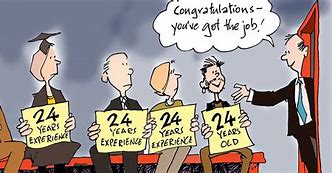Below is a review of the posts (on Facebook, LinkedIn, and Twitter) from the past week. You can check out the full posts by clicking on the links.

In the post on Sunday 6/13/21 we talked about segregating unvaccinated workers (and what to think about). Yes, employers can segregate those who are vaccinated from those who are not. But should they, especially in light of the evolving CDC guidance? And how would an employer handle it if one or more employees cannot get vaccinated due to medical or religious reasons (i.e., placing them with unvaccinated persons might result in a charge of discrimination on the basis of disability or religion)? Perhaps one question to ask is if it is really practicable to segregate. See the post for some Q&A on that. And what if it is impossible to segregate – such as in the situations addressed in the post. There are ways to handle those situations (as noted in the post). And finally, what can, or should, an employer do to verify vaccination status? Good question. The answer may depend on state law (see the post).
TAKEAWAY: As with many things COVID, there is not one right answer for all workplaces. Each employer should make its own choices after consulting with an employment lawyer.

as the pandemic ebbs
The post on Monday 6/14/21 asked: Should employers enforce perfect attendance as the pandemic subsides? Most perfect attendance policies were suspended during the height of the pandemic. But what about now, as vaccination rates increase and things in or related to the workplace are beginning to resemble what they did or were pre-COVID? Enforcement of perfect attendance policies can make a difference to some employees as they often come with monetary bonuses or other things as noted in the post. But enforcement also means complying with applicable law, including the FMLA since COVID may well be covered. And enforcement has a downside too – see the post for what may be one unintended effect.
TAKEAWAY: If a perfect attendance policy will be (reinstated and) enforced, make sure to notify employees and that it is properly and legally administered.

by 79 former employees
The post on Tuesday 6/15/21 told us that dozens of longtime employees are suing Farmers Insurance for age discrimination. Ok, more than dozens; 79 in fact. One of them even sold Farmers’ insurance for 57 years! The suit alleges that the plaintiffs were harassed and wrongfully terminated between June 2018 and April 2020. There are also other allegations as noted in the post. The suit centers around representations made by Farmers to the agents and what Farmers then did – all noted in the post. The terminations were allegedly for failing to meet business results, but the plaintiffs say there was no definition of those results in their contracts. How did the terminations affect the agents/plaintiffs? See the post.
TAKEAWAY: Before taking adverse action against any worker in a protected class – be it an older employee or on the basis of another protected characteristic – make sure you are on solid legal footing.

The post on Wednesday 6/16/21 was on the condo and HOA home front: What to do about that pesky tree? Meaning that roots block the sewage line to a Unit? Or the tree blocks one house but not another? The answer depends in large part – or perhaps entirely – on the provisions of the Governing Documents (Declaration, Bylaws and Rules/Regulations). There is probably a provision dealing with maintenance responsibility for plumbing (sewer and water) lines and clogs or breaks. Some possible ways they might deal with responsibility are noted in the post. And what about if trees block the view for some owners? Again, what for the Governing Documents say? And how did it happen? One example is in the post. Looking ahead to a time when a blocked view might become reality is a good idea for some associations – see the post for an example.
TAKEAWAY: Trees are living things and change over time; so too can association Governing Documents change, but do it with the assistance of knowledgeable community association counsel.

In the post on Thursday 6/17/21 we saw that even with loosened restrictions some COVID-19 rules at condo/HOA pools remain in place. We asked what your condo or homeowners association has done. The CDC or PA Department of Health (or even the local municipality) can issue guidelines or restrictions, but so too can an association relative to its amenities. It is summer and pool season is in high gear, but questions about reopening and restrictions are also in high gear. Many associations continue to require mask-wearing when not in the pool and other COVID restrictions noted in the post. Restrictions on guests may be a part of the mix as noted in the post. And what about waivers? They might be part of the package too. Associations may also have encountered, or still be dealing with, a lifeguard shortage. Why that might be happening is discussed in the post.
TAKEAWAY: Make sure any decision – to remain closed or to reopen with restrictions – passes legal muster. Consult your association’s lawyer.

The post on Friday 6/18/21 was about how to get sued for age discrimination – a roadmap for employers and employees. The post includes seven (7) things employers should not do as they try not to get sued for age discrimination. Note that those same 7 things are key areas where employees look to see if they have any claims against their employer. So, what are the 7 things? First, don’t walk into “suddenly stupid syndrome”. What that means is in the post. The employee will know about it, and probably have records, so it is legal quicksand. Next, don’t cut job responsibilities, limit authority, change titles, or other things noted in the post. These things might even be legal, but they will have emotional consequences for the employee, and that person may turn around and due or bring charges for age discrimination, thus taking time and money to resolve the matter. Third, don’t isolate older employees from meetings, business lunches or strategy session they had been invited to in the past or similar actions as noted in the post. Yes, this too could be part of a pattern they will allege as part of their age discrimination charges. The other 4 things are listed in the post, along with their consequences. And that’s not all; a bonus at the end of the post are a few tips for employees who may suspect they have been discriminated against on the basis of age – see the post.
TAKEAWAY: Some actions that might not seem to be discriminatory could legally be considered that way, so ensure that all (potentially) adverse actions against older employees are run by your employment lawyer.

in the workplace
Finally, in the post yesterday 6/19/21, we learned about addressing anti AAPI discrimination in the workplace. First, in case you are unsure, AAPI is shorthand for Asian-American and Pacific Islander. There has been an increase in hate crimes against AAPIs since the COVID-19 pandemic began. Legislation recently passed in Congress and was signed into law by the President on May 20, 2021 (see the post for some of its provisions and a link for more information). But that’s just the tip of the iceberg. The law does not address AAPI harassment or discrimination in the workplace, but companies are starting to address it. The post mentions a few examples. Also noted are some things that employers can do to combat AAPI harassment and discrimination, including ensuring that all employees’ voices are heard and the other things noted in the post.
TAKEAWAY: harassment or discrimination against AAPIs may be considered to be on the basis of ethnicity or national origin; both are protected characteristics that can subject an employer to legal sanction. Just don’t put yourself in that position.

 York, Pennsylvania 17403
York, Pennsylvania 17403